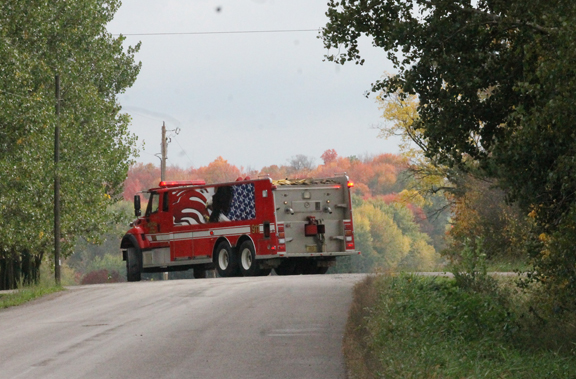Camping is for parks, not on city streets
Before the winter is out, Cornell is looking at regulating what can, and cannot, be parked on city streets. After talking about it earlier this fall, the Public Health and Safety Committee met Nov. 19, to construct some new language to a city ordinance.
Ordinances from Cadott, Ladysmith and Stanley, were referenced dealing with parking regulations, with the three citing a 48-hour limitation.
“That right there would control our parking of the trailers – all of it,” said chairman Aimee Korger.
“You got to make this iron clad,” said council member Floyd Hickethier.
Those present agreed, saying there were more than a few campers on the streets that were “pulled out” throughout the summer, some with cords running to them from across the street.
“It seemed like they were being used for more than loading and unloading,” said Korger.
Police chief Brian Hurt said he is also concerned about the weight of campers and trailers cutting into streets. In addition, Korger and council member Ashley Carothers said some larger campers are blocking stop signs, even though the units are legally parked far enough back from the stop sign.
“Something has to be done to protect the ambulance,” said Korger.
There is also an issue letting students off, where oncoming cars have difficulty seeing the bus past things parked on the street.
Carothers said it’s one thing to park a camper on the street and stay in it overnight, but quite another to live in the camper for days, weeks or months on end.
“Yeah, but that’s camping on city streets,” said Korger of even short-term stays, which is a no-no.
“I don’t think you should be able to park campers on the street, anyway,” said Hickethier.
Hurt said some cities limit semi parking to three hours, drivers can unload and move to a designated parking area.
“We have the Mule-hide (Mfg.) lot down there (near visitors’ center),” said Hurt.
Those present agreed there should be a 48 hour parking limit for anything over a 16,000 pound weight limit, with a length of 22 feet. In addition, unattended and unattached trailers must be moved within 24 hours, in a 15-day time frame.
If the ordinance is passed and approved by the council, anyone in violation could be fined around $124.
“I think that by restricting these things, it would definitely resolve a lot of the issues we are experiencing right now,” said Korger.



